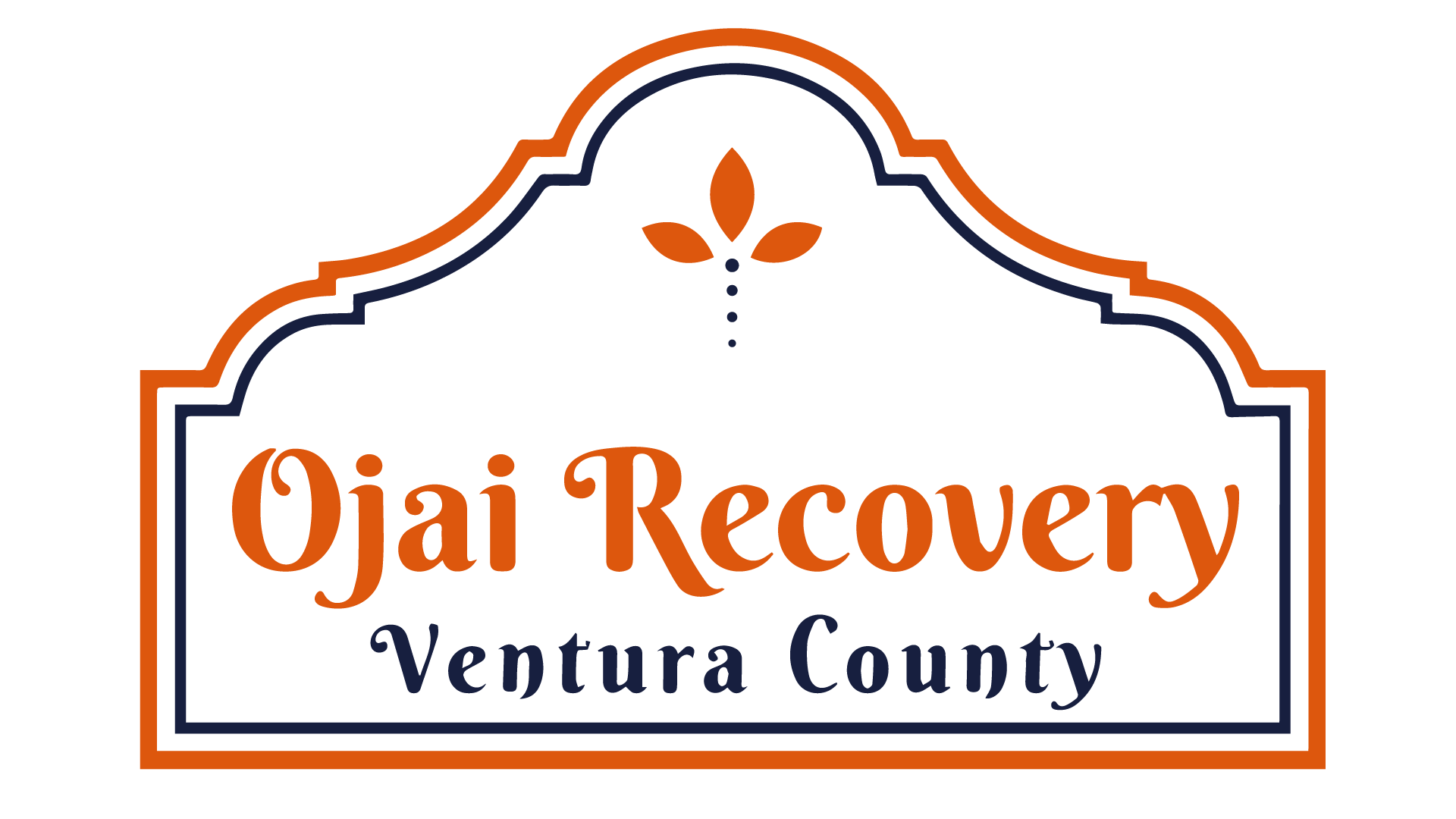Understanding Outpatient Rehab Services
Outpatient rehab services provide a flexible and supportive approach for individuals seeking help with drug and alcohol addiction. They cater to those who require treatment while still managing daily responsibilities, such as work or family commitments.
Key Benefits of Outpatient Care
Choosing outpatient drug rehab services near you comes with numerous advantages:
- Flexibility: Outpatient programs allow you to attend therapy sessions without disrupting your daily life. This flexibility helps you manage both recovery and your personal obligations.
- Comprehensive Care: Outpatient programs, such as those offered by Ojai Recovery, address addiction through behavioral therapies, medication management, experiential therapies, family therapy, and aftercare support (University of Utah Health).
- Community Support: Participating in an outpatient program often includes group therapy sessions, providing a sense of community and shared experiences, essential to the recovery journey.
- Cost-Effectiveness: Outpatient rehab typically costs less than inpatient options, making it an economical choice for many seeking treatment options.
- Increased Relapse Prevention: With aftercare support integrated into outpatient services, individuals develop skills to prevent relapse while navigating everyday life challenges.
Customized Discharge Plans
A crucial aspect of outpatient rehab services is the development of customized discharge plans. These personalized plans are created to ensure a smooth transition from treatment back to everyday life. Key elements often include:
- Continued Care Instructions: Guidelines for ongoing therapy sessions or support group attendance post-treatment.
- Medication Management: Coordination with healthcare providers regarding any medications prescribed during treatment.
- Support Network Identification: Involvement of family members or supportive peers to aid in the recovery process.
- Relapse Prevention Strategies: Tailored strategies designed to help individuals handle triggers or stressors that may lead to substance use.
These customized discharge plans are essential for equipping individuals with the necessary tools to maintain their recovery success. For more information about outpatient programs, explore our links to drug rehab centers near me or outpatient rehab near me.
Importance of Nutrition in Recovery
Nutrition plays a significant role in the recovery process from substance abuse. Proper dietary choices can enhance healing and overall well-being, addressing various physical and mental health challenges that may arise during rehabilitation.
Role of Proper Nutrition
Proper nutrition is essential in helping your body heal and function effectively after substance abuse. Nutritional intake can significantly impact metabolism, organ function, and nutrient absorption, all of which can be adversely affected by drug or alcohol use. A balanced diet supports these processes, facilitating recovery and enabling you to regain your strength.
Healthcare professionals often recommend consulting with a nutritionist or dietitian who specializes in addiction recovery. They can help create a tailored meal plan that includes essential vitamins and minerals necessary for recovery. Strategies might focus on increasing protein intake to support muscle regeneration, as well as incorporating fruits and vegetables that provide antioxidants and other beneficial compounds that combat oxidative stress.
To illustrate the impact of nutrition, consider the following table showcasing essential nutrients and their benefits in recovery:
| Nutrient | Benefits |
|---|---|
| Protein | Supports tissue repair and muscle regeneration |
| Omega-3 Fatty Acids | Reduces inflammation and supports brain health |
| Antioxidants | Helps combat oxidative stress |
| Vitamins B | Supports energy production and nerve function |
| Fiber | Aids digestion and promotes gut health |
Health Benefits of Nutritious Choices
Making nutritious meal choices during recovery leads to numerous health benefits. Focusing on healthy foods can improve your mental health, enhance energy levels, and bolster your immune system. When combined with a treatment plan, proper nutrition can significantly influence your recovery journey.
Some of the health benefits associated with nutritious choices include:
- Improved Mental Well-Being: Nutrient-rich foods can positively affect mood and emotional stability, which is vital in the recovery process. Incorporating foods high in Omega-3 fatty acids, such as fish and flaxseeds, can enhance brain health and alleviate symptoms of depression and anxiety University of Utah Health.
- Enhanced Energy Levels: Consuming balanced meals with adequate carbohydrates and proteins can provide sustained energy, which is essential for participating in rehabilitation activities and maintaining an active lifestyle.
- Stronger Immune System: A diet rich in vitamins and minerals can help elevate your body’s defenses against illnesses, crucial for those recovering from substance abuse.
- Hormonal Balance: Proper nutrition helps regulate hormones that may be disrupted due to substance abuse, further stabilizing your mood and overall health.
Choosing outpatient rehab services that emphasize the importance of nutrition can be a vital step in your recovery. For more information on finding the right treatment for you, consider exploring our links on drug rehab centers near me or outpatient drug rehab near me.
The ASAM Criteria and Treatment
In understanding the landscape of addiction treatment, the ASAM Criteria play a crucial role. They are the most widely used standards for the placement and ongoing care of patients with addiction and co-occurring conditions. Established in the 1980s, these criteria provide an organized framework to ensure effective treatment across various levels of care.
Multidimensional Assessments
The ASAM Criteria utilize multidimensional assessments to evaluate patients. This assessment framework considers several factors including biomedical, psychological, and social needs. By evaluating these dimensions, therapists and clinicians can formulate personalized treatment plans that cater to individual situations and challenges.
Table 1 below outlines the key dimensions considered in ASAM assessments:
| Dimension | Description |
|---|---|
| Dimension 1 | Acute intoxication and/or withdrawal potential |
| Dimension 2 | Biomedical conditions and complications |
| Dimension 3 | Emotional, behavioral, or cognitive conditions and complications |
| Dimension 4 | Readiness to change |
| Dimension 5 | Relapse potential |
| Dimension 6 | Recovery/Living environment |
This comprehensive assessment process guides the development of level of care recommendations, ensuring that your treatment aligns with your specific needs. For more details on outpatient drug rehab services near me, consider visiting local resources tailored to these criteria.
Framework for Addiction Treatment
The ASAM Criteria also provide a systematic framework for organizing the addiction treatment system. These guidelines require coordination among clinicians, payors, and policymakers to enhance the effectiveness of addiction services. The foundation for these criteria is anchored in ongoing research and expert consensus, continuously adapting to reflect real-world implementation effects.
With revisions managed by various stakeholders, including the ASAM Criteria Editorial Team and the Quality Improvement Council, the criteria ensure that the standards remain relevant and effective. The insights gleaned from clinical stakeholders contribute significantly to addressing the complexities of addiction treatment.
To explore more about outpatient programs that align with these criteria, check out the information on our outpatient rehab programs. These programs are designed to meet the diverse needs of those seeking help for substance use disorders, aligning with ASAM’s best practices in care.
Outpatient vs. Inpatient Rehab
When considering treatment options for substance use disorders, you may find yourself weighing the benefits and drawbacks of outpatient versus inpatient rehabilitation services. Understanding the success rates and factors influencing treatment choices can help you make an informed decision tailored to your needs.
Success Rates Comparison
Research indicates that outpatient care often demonstrates higher detoxification completion rates compared to inpatient care. In various studies across the UK, India, and the US, outpatient treatments showed improved abstinence rates and better drinking outcomes for individuals with alcohol dependence (NCBI Bookshelf).
| Treatment Type | Detox Completion Rate | Alcohol Consumption Reduction |
|---|---|---|
| Outpatient | Higher | Moderate |
| Inpatient | Lower | Significant |
Despite the advantages of outpatient care, inpatients with alcohol use disorders have been found to consume significantly less alcohol in the year following treatment. They also tend to engage more with Alcoholics Anonymous programs (NCBI Bookshelf). This suggests that inpatient treatment might foster stronger recovery networks for some individuals.
Factors Influencing Treatment Choice
Several factors influence the decision between outpatient and inpatient rehab, including:
- Duration of Treatment: Inpatient programs generally last at least 30 days, while outpatient programs often begin with a minimum of 2 months and can extend for several additional months if necessary. Longer treatment durations are correlated with better recovery outcomes.
- Cost Considerations: Inpatient rehab programs can be expensive and may not be covered by insurance. Conversely, outpatient services are typically more affordable and often more accessible even without insurance coverage (Healthline).
- Need for Flexible Scheduling: Outpatient rehab allows individuals to maintain their daily responsibilities, including work and family obligations, while still receiving treatment. This flexibility can be crucial for those who cannot commit to a residential program.
- Safety and Comfort: Some guidelines recommend that patients, particularly those with opioid use disorders, may experience safer withdrawal management in an outpatient setting. This approach minimizes the risks associated with a clinical environment while providing effective support.
If you or a loved one is considering treatment, exploring local options for outpatient drug rehab services near me can be a valuable step toward recovery. Evaluate the various facilities available, keeping in mind the factors that matter most to you.
Outpatient Rehab Program Details
Treatment Sessions and Therapies
Outpatient rehab provides flexible treatment options that fit into your daily life. Patients attend treatment sessions at various times throughout the week, allowing them to maintain their daily responsibilities while receiving necessary support. These sessions may include support groups, counseling, and medication administration as needed (Addiction Center).
Treatment plans are typically tailored to individual needs, incorporating various therapeutic methods, including:
| Therapy Type | Description |
|---|---|
| Individual Counseling | One-on-one sessions focusing on personal issues related to addiction. |
| Group Therapy | Supportive group sessions that foster community and shared experiences. |
| Family Counseling | Involving family members in treatment to promote healing and understanding. |
| Medication Management | Administration of prescribed medications to assist with recovery. |
This approach enables you to receive comprehensive care while living at home, which can be crucial for successful recovery.
Cost-Effectiveness and Insurance Coverage
Outpatient rehab is generally more affordable than inpatient programs. The costs associated with outpatient services can range from $2,000 to $5,500 for a 1–3 month treatment program. Many insurance providers cover a portion of these costs, making it a viable option for many individuals seeking help (Addiction Center).
| Cost Comparison | Outpatient Rehab | Inpatient Rehab |
|---|---|---|
| Typical Cost | $2,000 – $40,000 | $30,000 – $60,000+ |
| Duration | 2+ months | 30 days minimum |
| Insurance Coverage | Often partial | Varies by provider |
Outpatient rehab programs often provide varying levels of services, including intensive outpatient programs (IOP) and continuing care groups, designed to support you after the main treatment phase.
For those without insurance, government-funded grants, scholarships, and financing plans can assist with expenses. Outpatient rehab facilities usually offer transparent pricing and flexible payment options, making them more affordable for those seeking recovery without significant financial burden (Healthline).
Pursuing outpatient drug rehab services near you can lead to a path of healing while allowing you to remain engaged in your everyday life.
Specialized Techniques in Substance Abuse Treatment
Effective treatment for substance abuse often involves a combination of various specialized techniques to address the unique needs of individuals. This section will explore pharmacotherapy, behavioral therapies, and the roles of individual, group, and family counseling in the recovery process.
Pharmacotherapy and Behavioral Therapies
Pharmacotherapy, or the use of medications in treatment, plays a crucial role in managing substance use disorders. Healthcare professionals prescribe various medications to help alleviate withdrawal symptoms and reduce cravings. Approved medications for treating opioid use disorders in the U.S. include methadone, buprenorphine, and naltrexone (SAMHSA).
Behavioral therapies complement pharmacotherapy by addressing the psychological aspects of addiction. They include cognitive-behavioral therapy (CBT) and relapse prevention strategies, which help individuals recognize triggers and develop coping mechanisms. These therapies aim to change harmful patterns of thinking and behavior associated with substance use (NCBI Bookshelf).
The table below summarizes these specialized techniques:
| Technique | Description |
|---|---|
| Pharmacotherapy | Use of medications like methadone and buprenorphine to manage withdrawal and cravings. |
| Cognitive-Behavioral Therapy | Focuses on changing negative thought patterns and behaviors linked to substance use. |
| Relapse Prevention Strategies | Teach individuals how to prevent relapse through coping skills and recognition of triggers. |
Individual, Group, and Family Counseling
Counseling is another essential component of outpatient drug rehab services. Individual counseling provides a safe space for you to explore personal issues related to addiction. One-on-one therapy helps identify the underlying causes of substance use and develop targeted action plans.
Group counseling sessions offer support from peers who understand similar struggles. These sessions promote accountability and bolster motivation. Additionally, family counseling addresses the impact of addiction on relationships. Involving family members promotes healing and strengthens the support system needed for recovery.
Self-help groups, such as Alcoholics Anonymous (AA), are valuable resources in outpatient rehab settings. They provide ongoing support and help establish a community of individuals committed to sobriety (SAMHSA).
Here’s a quick overview of counseling options:
| Counseling Type | Benefits |
|---|---|
| Individual Counseling | Personalized focus on individual goals and challenges. |
| Group Counseling | Peer support and shared experiences enhance motivation and accountability. |
| Family Counseling | Engages family members to improve dynamics affected by substance use. |
| Self-Help Groups | Ongoing support through community and shared recovery journeys. |
By incorporating pharmacotherapy, behavioral therapies, individual counseling, group sessions, and family involvement, Ojai Recovery can provide a comprehensive and effective approach to overcoming drug and alcohol addiction. For those seeking outpatient drug rehab services near me, these specialized techniques play a pivotal role in achieving long-term recovery.










